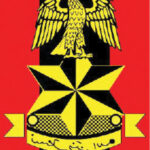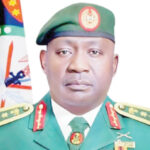A contagion of military coups might be sweeping across Africa, but Nigeria’s armed forces must keep their head and remain firmly committed to democracy.
From August 2020 to date, there have been eight successful coups in six African countries: Mali, Guinea, Sudan, Burkina Faso, and most recently Niger Republic and Gabon. In Mali and Burkina Faso, there were two coups each within months of each other, while those of Niger Republic and Gabon were just one month apart. Moreover, there have been six attempted but ultimately unsuccessful coups during the same period, including in Chad, Guinea Bissau, The Gambia, Niger (March 2021), Sudan, and Sao Tome and Principe.
Africa has had a long and troubled history of military coups: 45 out of the continent’s 54 countries have known a military takeover of government at least once. Altogether, there have been a total of 214 coups on the continent between 1950 and 2022, both successful and unsuccessful, according to a 2022 tally by two American researchers; Jonathan Powell and Clayton Thyne.
Keen observers of African affairs will therefore sense a familiar feel to the current resurgence as the “first wave” of military coups in the 1960s was similarly contagious. Starting from one spot, incursions into politics soon became the favorite sport of soldiers all across Africa. In the six short years between 1963 and 1969, for example, there were 26 successful and 15 failed military coups on the continent. In the following decade, between 1970-1979, there were 18 successful and 24 unsuccessful coups.
The North is no more – General Lekwot
Insecurity: Emir of Birnin Gwari swaps two district heads
West Africa, nicknamed the world’s “coup belt” always had the highest number of coups, accounting for 44% of the 106 successful and 108 failed military coups on the continent by the end of 2022. That today’s resurgence coups and coup attempts have occurred in some of the countries with geopolitical and cultural affinities to Nigeria, and in at least two cases bothering it directly, has not gone unnoticed by many Nigerians. Many Nigerians are rightly, we believe, alarmed by the recent spate of coups nearer home. Others, sadly, appear excited by it and thus engage in what at least one leading columnist calls “coup baiting” by literally calling for it on social media or elsewhere.
We strongly condemn and warn against such misguided endeavours. There is absolutely no place for military coups in Nigeria’s current political development, and we urge the officers and men of our armed forces to remain steadfast to their oaths of office to serve and protect, not to disrupt, Nigeria’s democratic order as enshrined in our constitution.
No doubt Nigeria’s democratic system, from 1999 to date, has not been without its challenges, not least the crises of good governance and delivering democracy’s much-touted dividends to majority of Nigerians. Sometimes, too, the feeling is palpable among ordinary citizens and informed commentators alike that our current crop of political leaders has not done much, or could certainly have done better, in managing democracy itself. Yet, the answer to these challenges is definitely not a return to military rule.
In his now classic book, The Man on Horseback: The Role of the Military in Politics (first published 1962), the British political scientist, Samuel E. Finer, observed that in developing societies where political and governance structures are often too weak to respond adequately to the needs of the citizens, military intervention can be quite tempting for soldiers, sometimes merely out of a sense of their own power. This appears true for some of the coups in Africa lately, as it was in the past.
Yet, as Finer also points out, coups breed coups, often resulting in a long trail of violence and destruction that can take years to correct. Secondly, he notes that, however, popular a military government might be at first, it will still face a crisis of legitimacy sooner or later, which in turn compels coupists to justify themselves as only a “temporary” or “corrective” regime against the ‘corrupt’ politicians. All of these inevitably make military governments unstable, vulnerable to the same defects they reject in the politicians, and ultimately unsuitable and ill-equipped for enduring political leadership in a country.
Nigeria is a living witness to all of these in ample measure; as are many other African countries. In the long run, Africa’s military leaders never solve the problems of governance for which they unjustifiably take power. A return to military rule, therefore, is not the answer anywhere in Africa. If anything, military professionalism, ethics and values tend to become corrupted once soldiers get themselves engaged in the business of politics, an affliction of the past that Nigeria’s military are still arguably working hard to recover from.
This is why we commend our military hierarchy for restating their commitment to Nigerian democracy at a time when soldiers elsewhere have become tempted, yet again, by the lure that political power offers. It is also the case that in Nigeria and elsewhere in Africa, politicians on the wrong side of power sometimes play crucial roles in the emergence of military governments. We urge our officers and men to vehemently disregard any such treasonable whispers of civilian manipulators, should they ever arise.
Equally important, while we note the many challenges of Nigerian democracy as highlighted above, we are nevertheless aware that the superstructures of Nigerian democracy—regular elections, peaceful change of power, expanded freedoms for citizens’ participation in all spheres of society—are all not only solid and sound but are growing increasingly more so. This is not to deny the serious deficits that remain, but to emphasize the fact that enough has been achieved to warn against throwing the democratic baby away with the bath water of a return to military rule.
Ultimately, the best antidote to military takeovers is good and responsive governance by the elected officials. Nigeria’s political leaders must lead the rest of the continent on that path.

 Join Daily Trust WhatsApp Community For Quick Access To News and Happenings Around You.
Join Daily Trust WhatsApp Community For Quick Access To News and Happenings Around You.


